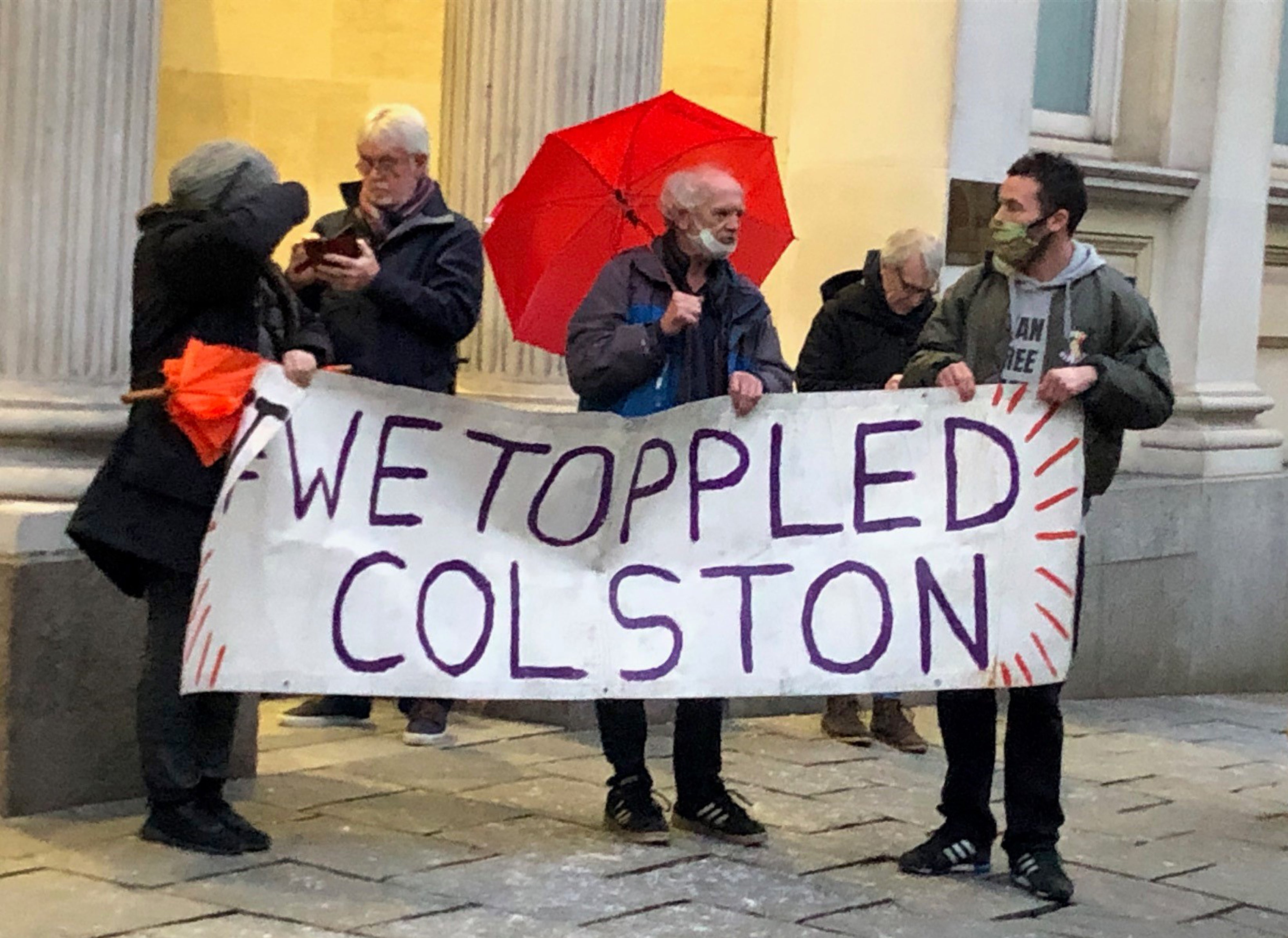Two cheers for the Colston jury – but the case should never have come to court
The urgent need is to clear the backlog of cases in the legal system, rather than prosecuting idealistic people with strong views about memorials to slave traders, argues John Rentoul


It is always fun to see Conservatives, who purport to believe in the ancient rights and liberties of the British, rail against a jury decision. But once we have enjoyed hearing Robert Jenrick, the former cabinet minister, saying that the Edward Colston statue verdict will “undermine the rule of law”, we should ask if he might be right.
Superficially, it doesn’t seem a good idea to suggest that anyone can tear down a statue they don’t like and get away with it. But that is not what the Colston verdict means. Any other group of protesters could not be sure that a jury would acquit them if they were to damage statues of, say, Winston Churchill or Karl Marx. Jury decisions do not set a precedent, and so the idea that one decision “undermines” anything is mistaken. And the one thing it cannot undermine is the rule of law, because the jury system is one of the oldest and best understood features of the rule of law.
There is, however, a different question of whether it should be. Spinning Hugo, the anonymous legal blogger, argues that, because juries do not give the reasons for their verdicts, “justice is not seen to be done”. In the Colston case, Matthew Scott, another lawyer, argued that the statue-breakers might not be guilty of criminal damage for three reasons: an honest belief that the owner of the statue would have consented; the use of reasonable force to prevent the crime of an indecent public display; or that a conviction would amount to a disproportionate interference with the right to protest.
We do not know which, if any, of those arguments the jury found persuasive, and Spinning Hugo argues that if juries were required to give reasons, this would hasten their abolition because those reasons would so often be seen to be capricious. He also makes the important point – although he calls it a “trivial, pragmatic” one – that jury trials are expensive and slow, diverting resources of money and time from the need to clear the backlog of more serious cases.
This last is the only argument that I think carries any weight: the clogging up of the courts system is an urgent problem, and if cases such as that of the Colston statue could have been dealt with by a mild telling off at an earlier stage, then those legal resources could have been devoted to dealing with serious crime.
However, I am with the traditionalists in defence of ancient liberties. The other sight that is almost as enjoyable as that of Conservatives attacking the rule of law in the name of the rule of law is that of anti-establishment radicals citing tradition in the name of equality.
But the value of the jury system is that it can be a safety valve against the build-up of rigid and authoritarian interpretations of the law. I think it is a good thing that we don’t know what the jury’s reasons were for acquitting the Colston Four. We can all invent our own rationale for it. For Robert Jenrick, it was a dangerous endorsement of an attack on property. For me, it was a sensible decision that it would have been disproportionate to jail idealistic people with strong views about memorials to slave traders.
Public opinion is on my side, and that of the jury. The most common view at the time was that of approving of the removal of the statue, but not of the way it was done. (Since then, it was reported that a long campaign to remove the statue had been obstructed by the local authorities.) The median citizen and I wanted the statue gone, didn’t approve of the vandalism, but don’t think anything should be done about it.
To keep up to speed with all the latest opinions and comment, sign up to our free weekly Voices Dispatches newsletter by clicking here
Jury decisions often seem perverse because they contradict some principle or other; equally, though, they are often celebrated because they often do so in defence of the common person against the might of the state. Pacifists are often acquitted in cases of what would otherwise be criminal damage of military bases.
Clive Ponting, a civil servant who leaked classified defence information about the sinking of the Belgrano in the Falklands war, was acquitted in 1985. It turned out that he was wrong about the Belgrano – he thought it was torpedoed as it was going back to port, but its captain confirmed that it was under orders to attack British ships. The jury might even have shared Ponting’s mistaken view, but we don’t know, and I prefer to believe that its members simply thought it was wrong to send someone to jail for making a reality of freedom of information before there was a law of that name.
Let us get our priorities right and focus our attention on clearing the backlog of cases in our courts – but not by curbing the right to a jury trial, which remains one of the fundamental guarantees of people’s rights.
Join our commenting forum
Join thought-provoking conversations, follow other Independent readers and see their replies
Comments
Bookmark popover
Removed from bookmarks